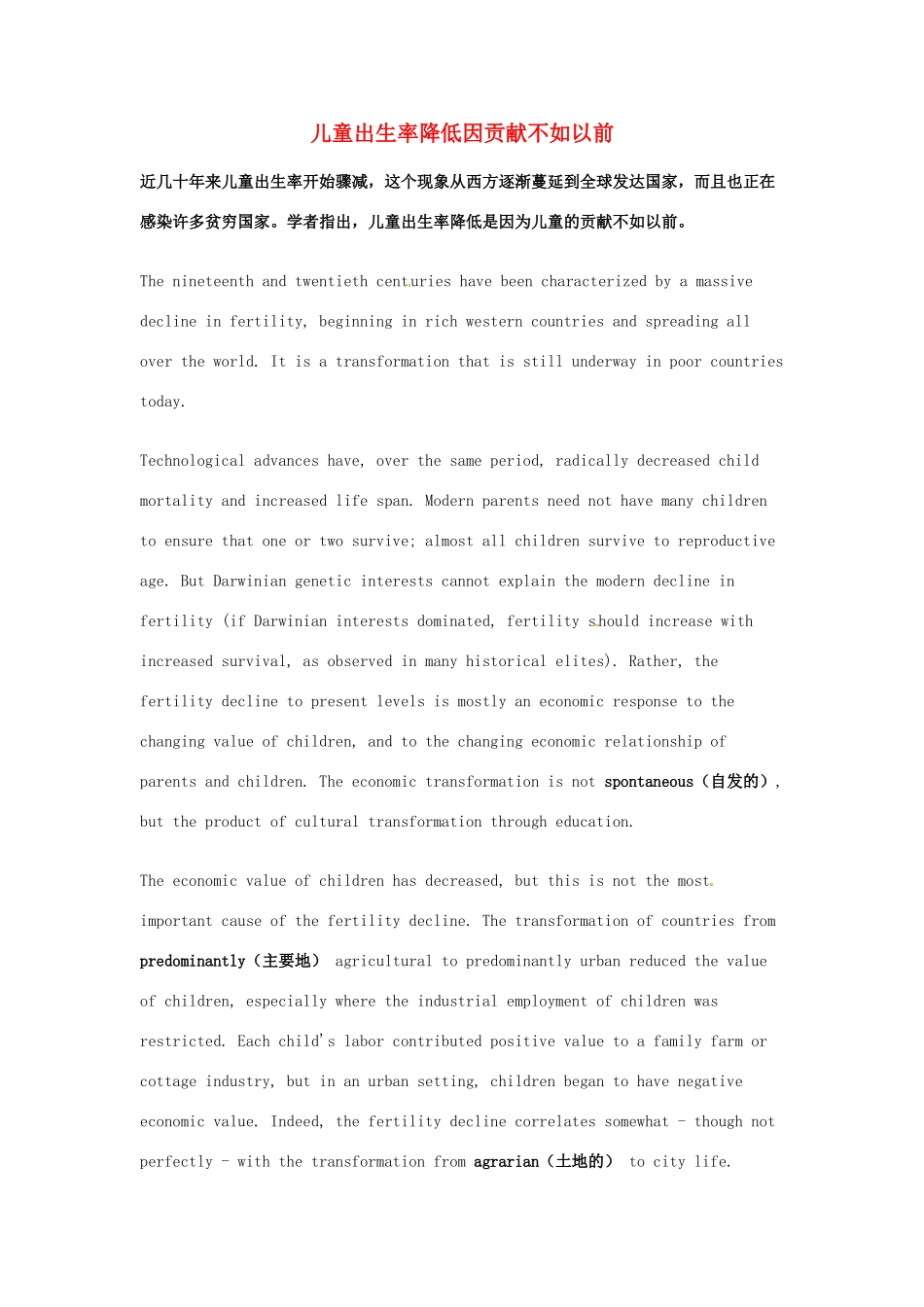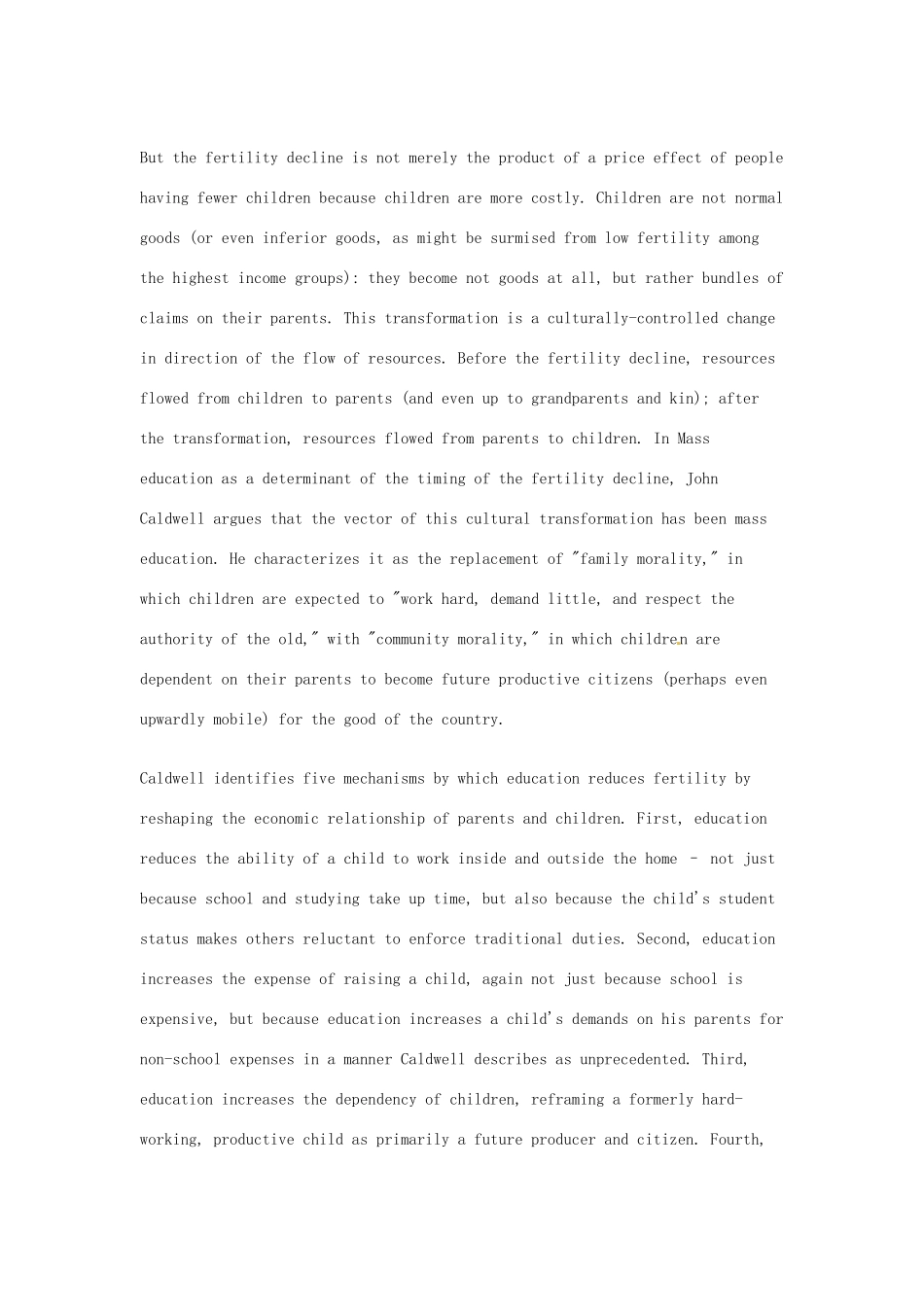儿童出生率降低因贡献不如以前近几十年来儿童出生率开始骤减,这个现象从西方逐渐蔓延到全球发达国家,而且也正在感染许多贫穷国家。学者指出,儿童出生率降低是因为儿童的贡献不如以前。 The nineteenth and twentieth centuries have been characterized by a massive decline in fertility, beginning in rich western countries and spreading all over the world. It is a transformation that is still underway in poor countries today. Technological advances have, over the same period, radically decreased child mortality and increased life span. Modern parents need not have many children to ensure that one or two survive; almost all children survive to reproductive age. But Darwinian genetic interests cannot explain the modern decline in fertility (if Darwinian interests dominated, fertility should increase with increased survival, as observed in many historical elites). Rather, the fertility decline to present levels is mostly an economic response to the changing value of children, and to the changing economic relationship of parents and children. The economic transformation is not spontaneous(自发的), but the product of cultural transformation through education. The economic value of children has decreased, but this is not the most important cause of the fertility decline. The transformation of countries from predominantly(主要地) agricultural to predominantly urban reduced the value of children, especially where the industrial employment of children was restricted. Each child's labor contributed positive value to a family farm or cottage industry, but in an urban setting, children began to have negative economic value. Indeed, the fertility decline correlates somewhat - though not perfectly - with the transformation from agrarian(土地的) to city life. Bu...


